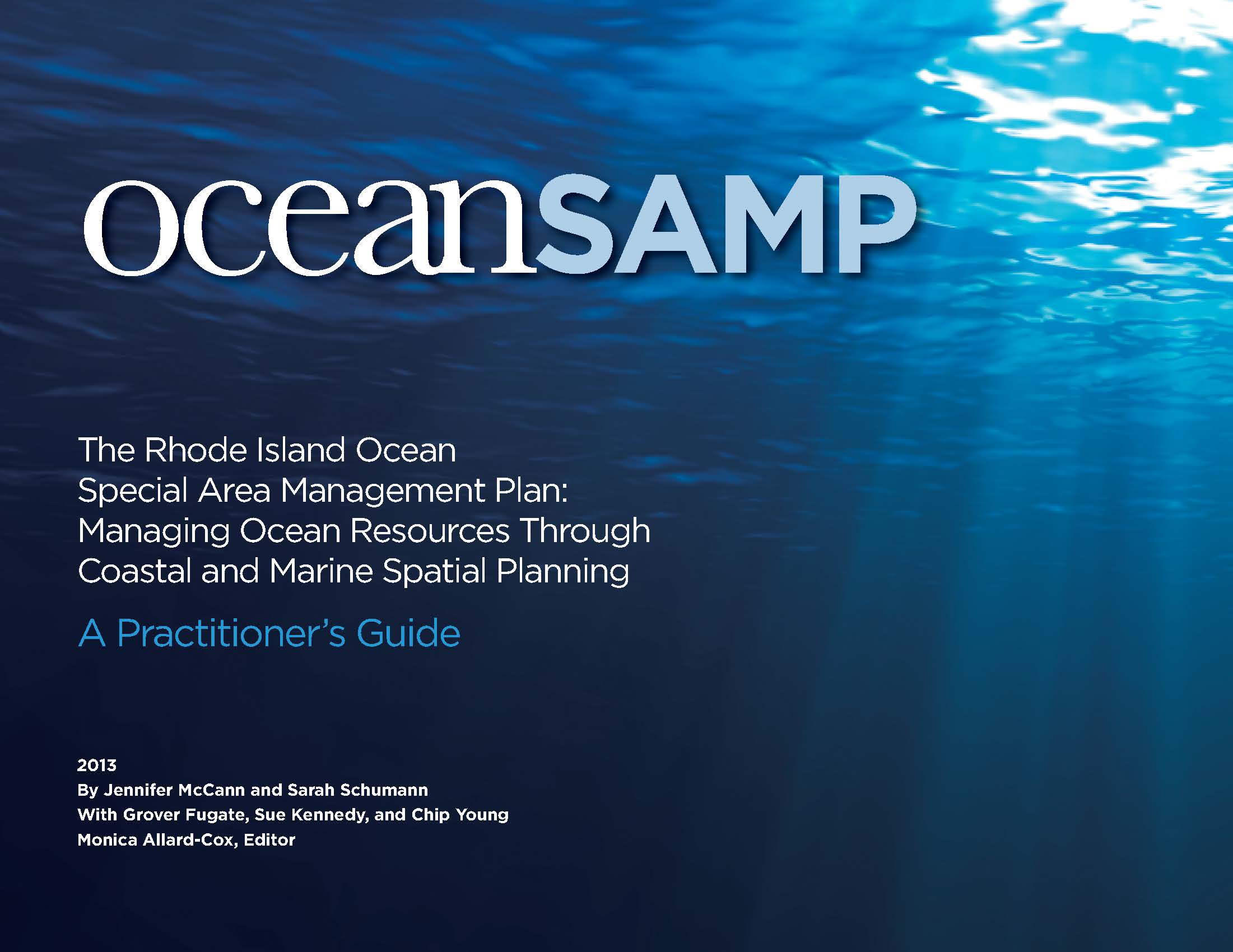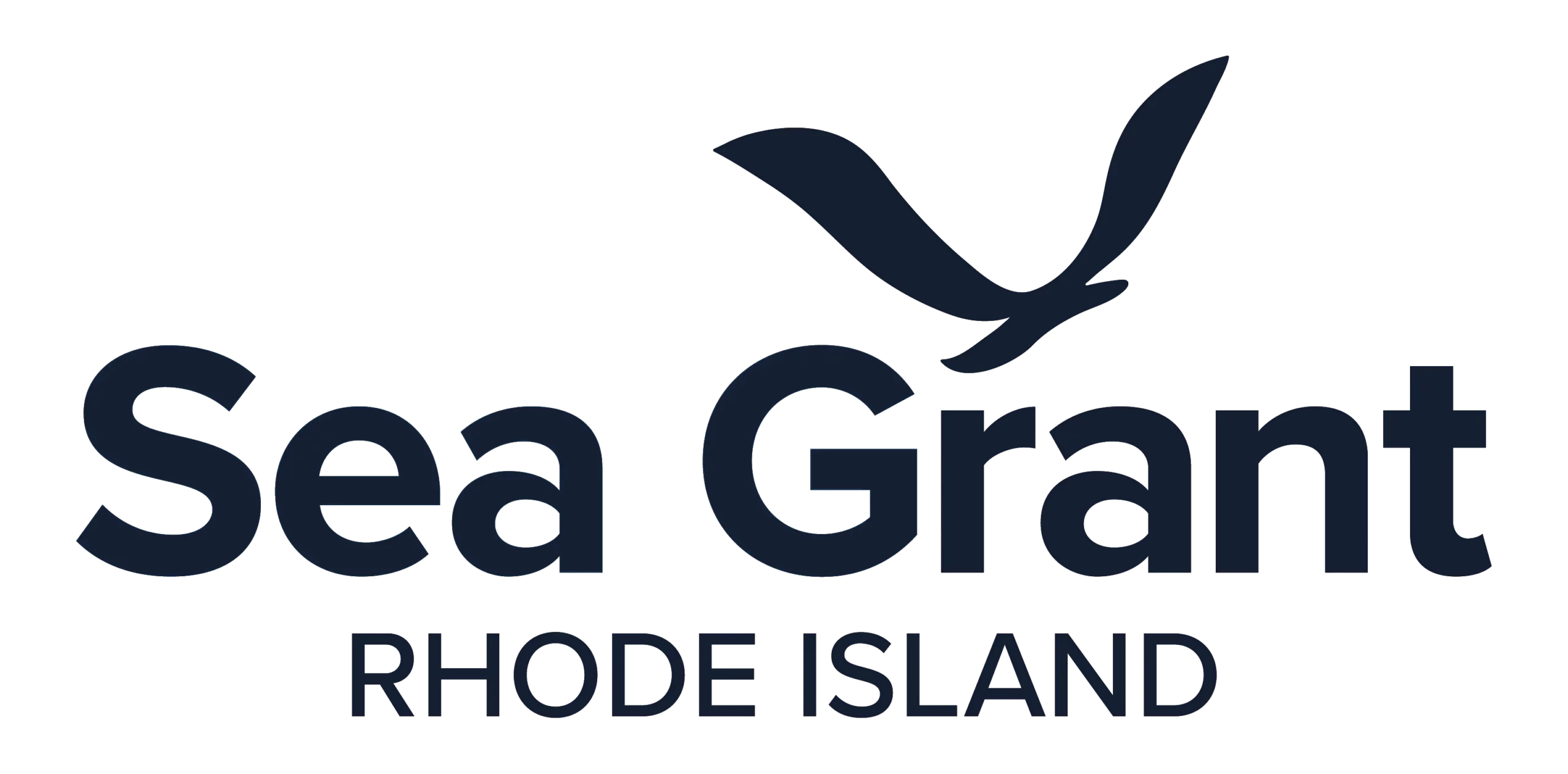Rhode Island became the first state in the nation to have an operational offshore wind farm in 2016 after an extensive planning process that identified an optimal location and addressed environmental, technical, and logistical concerns and user conflicts.
Today, larger offshore wind farms are planned along the U.S. coast. These will affect many communities, and their coastal leaders and managers are seeking to rapidly educate themselves on the latest research and policy knowledge regarding their development, operations, and how communities can and should respond to these proposals.
Having developed expertise in this realm from managing the policy and outreach for Rhode Island’s Ocean Special Area Management Plan, which led to the development of

Rhode Island Sea Grant Extension Director Jennifer McCann selected to serve as the Offshore Wind Energy Liaison for the National Sea Grant College Program.
the Block Island Wind Farm, Jennifer McCann has been selected as the Offshore Wind Energy Liaison for the National Sea Grant College Program in partnership with the U.S. Department of Energy. McCann, the extension director for Rhode Island Sea Grant, will seek to strengthen Sea Grant’s network capacity to contribute and respond to the nation’s rapidly evolving offshore wind energy development.

The Block Island Wind Farm led the way for subsequent offshore wind proposals around the U.S
“This is a great opportunity for Rhode Island Sea Grant to share the body of knowledge developed in Rhode Island about offshore wind energy with the broader network of Sea Grant programs and the communities they serve. Jen McCann’s many years of experience in offshore wind energy development make her an excellent choice to lead this effort,” says Tracey Dalton, Rhode Island Sea Grant director.
McCann has spoken with many Sea Grant practitioners to assess their needs for offshore wind energy knowledge and tools to support their work with stakeholders, from fishermen, to supply chain businesses, to conservationists. Educational efforts like webinar programs and a website featuring curated offshore wind energy resources will be available to Sea Grant staff and the public at large and will cover a variety of relevant topics, such as impacts to commercial fisheries, building a skilled workforce to support offshore wind energy, and integrating offshore wind activities into ocean planning efforts.

This guide was published to share knowledge about ocean management with practitioners in the U.S. and around the world.
“The Ocean SAMP began in 2008, and we managed a stakeholder process that brought experts in marine mammals, migratory birds, ocean engineering, underwater archaeology, oceanography, fisheries, and many other fields together to survey the area and explain their findings to decision makers and stakeholders. We learned a lot about the considerations of competing users as well. And I’m happy to bring that knowledge to other communities who are facing these same issues as renewable energy projects are picking up speed all along the coast,” McCann says.
More Information
Ocean Planning
Sea Grant works to strengthen the local and regional professional network and enhance ocean planning practices to ensure an inclusive and sustainable future of our ocean resources.
Sea Grant Federal Partnership Liaisons
Sea Grant Liaisons integrate research and end-user needs by connecting Sea Grant extension expertise with science, products, and services from NOAA labs and other publicly supported scientific research programs.


